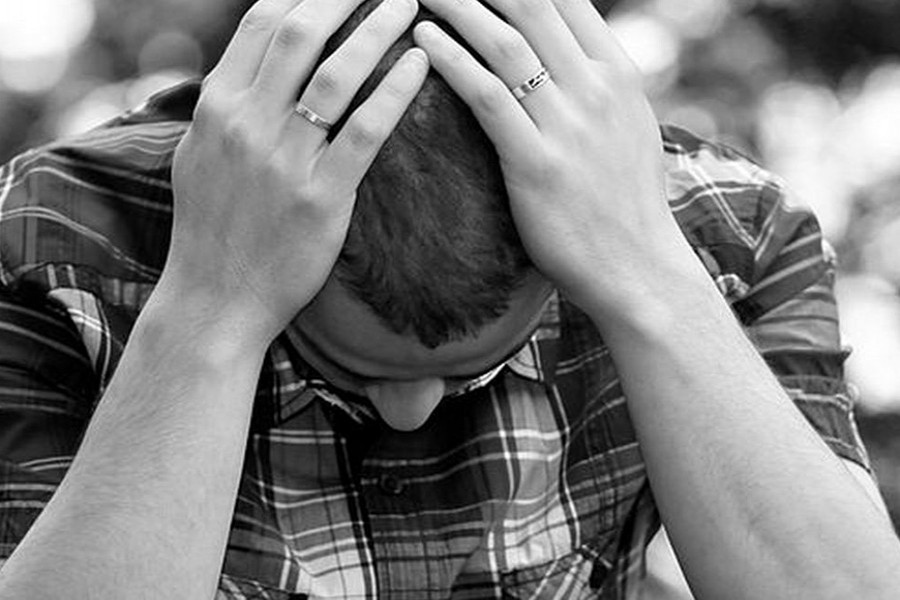The lockdown following the sudden outbreak of corona virus (Covid-19) has transformed people from being social to isolated human beings as a means of combating the pandemic. The effects of the pandemic has already killed an unbelievable number of people across the globe and new cases of infected people continue to rise. Health experts assume that nearly 300 million people suffer from some sort of panic and anxiety disorder and warn that our mental health may be at serious stake.
The rapid spread of this virus across countries with continuous media coverage, including rumours spread on the social media, has added stress and hysteria to millions across the world. This mental health issue triggers serious physical health risks and threat to the people of all ages.
Millions of people around the globe are stressed and nervous due to various associated reasons such as-- fear of being infected and losing loved ones, losing livelihoods, job insecurity, feelings of helplessness etc. This is often followed by anxiety-related behaviours, sleep disturbances, and an overall lower perceived state of health. Individuals with mental illness may be particularly vulnerable to the effects of widespread panic and threat.
Mental health is all about our emotional, psychological, and social well-being. It affects our thinking, feelings, and activities along with the coping mechanism for stress. It has been observed that a quarter of the world population struggles with mental health problems in managing daily livelihood challenges. Unfortunately, people's direct and indirect exposure to covid-19 threats may increase the mental health crisis manifold.
Parenthetically, in developing countries due to lack of awareness and indifferent attitude, mental health is correlated with havoc and stigma, people generally ignore its importance and adverse health impacts. But the sudden outbreak of Covid-19 epidemic in these countries and related uncertainty and fear may push majority of the population into higher mental health risk taking toll on people's physical health. It is important to understand that a healthy life with a sound mental state can enhance the immune system's ability to fight this infectious disease.
Social distancing can cause long-term stress, anxiety, insecurity, low self-esteem, negativity, frustration and low motivation and overall downfall of mental health, which could become the main cause for physical illness we've never dealt with.
In male adults, 'social distancing' and 'work from home', absence of regular socialising and face to face interaction are making them more vulnerable and depressed. 'Work from home' and future uncertainty related with Covid-19 are gradually ending up at breaking point symptoms towards depression and low quality of life. On the other hand, it may affect the relationship issues with partners and may result in increased cases of domestic violence.
Females generally work as care-givers in most developing countries and could become subject to emotional, physical, and socio-economic harm due to the corona crisis. Evidence says women typically have higher rates of depression and anxiety disorders and absence of supportive relationship with friends, family and well-wishers are dangerous for the mental health and ultimately physical health, too.
Adolescents and teenagers, are very perceptive, may become more vulnerable and demanding and express their irritability and anger abruptly, which ultimately put undue pressure on themselves and to their parents. Some schools' initiatives of online classes are a bliss in disguise for the parents to keep them busy and disciplined but at the cost of peer group learning, which is pivotal for young learners.
Last but not the least, the old age people and the people with special need are in real vulnerable position because they need continuous support. They might experience cognitive decline or dementia at its worst form.
In reality, the stay home strategy of countries compelled people to use the internet, and different modes of information technology for work, entertainment, socialising, physical fitness etc. The media has to play a pivotal role in facilitating people with continuous counselling programmes and discussions besides information dissemination for all age group people in a responsible manner. Dr Hans Kluge, WHO Regional Director for Europe, noted that our anxiety and fear should be acknowledged and not ignored, and better understood and addressed by individuals, communities and governments. WHO takes the impact of the crisis on people's mental health very seriously and is monitoring the situation together with national authorities, while providing information and guidance to the governments and the common mass. Moreover, there are some counselling services online and programmes by government and other voluntary associations to help people deal with the problems originated from covid-19 outbreak. A handy counselling mechanism is a need of the time.
Pinki Shah PhD is Professor, School of Business, University of Liberal Arts Bangladesh (ULAB).


